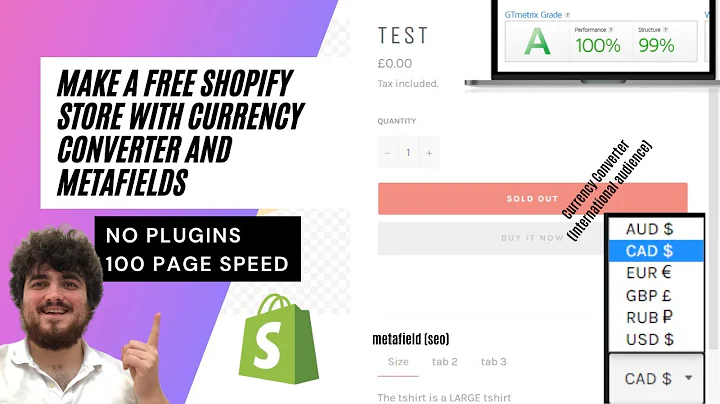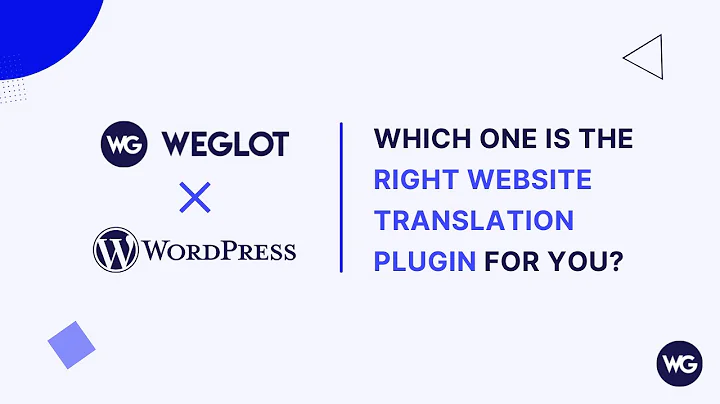Shopify vs Bigcommerce: Choose the Best Ecommerce Platform
Table of Contents:
- Introduction
- Factors to Consider When Choosing an Ecommerce Platform
- Control and Design Options
- Pricing and Fees
- Integrations and Apps
- Blogging Functionality
- Pros and Cons of Shopify
- Pros and Cons of Bigcommerce
- Making the Right Choice for Your Business
- Conclusion
Title: Shopify vs Bigcommerce: Choosing the Right Ecommerce Platform
Introduction
When it comes to starting an ecommerce business, one of the crucial decisions you have to make is choosing the right platform. Two major players in the ecommerce industry are Shopify and Bigcommerce. While both platforms offer great features, they differ significantly in various aspects. To help you make an informed decision for your online business, this article will delve into the key factors to consider when choosing an ecommerce platform, explore the control and design options, pricing and fees, integrations and apps, blogging functionality, and provide an analysis of the pros and cons of both Shopify and Bigcommerce. Let's dive in.
Factors to Consider When Choosing an Ecommerce Platform
Before making a decision between Shopify and Bigcommerce, it's essential to consider several factors that are crucial for the success of your online business. These factors include control and design options, pricing and fees, integrations and apps, and blogging functionality. By understanding these key aspects, you'll be able to choose the right ecommerce platform that aligns with your business goals and requirements.
Control and Design Options
One important factor to consider when choosing an ecommerce platform is the level of control and design options it offers. You want a platform that provides flexibility and allows you to customize your store according to your brand's needs. Both Shopify and Bigcommerce offer a range of themes, including free and paid options, to suit various design preferences. Shopify allows you to choose from hundreds of themes, giving you the freedom to customize your store's look and feel. Bigcommerce, too, provides a wide range of themes that can be tailored to match your brand. While Shopify might have an edge with more themes overall, both platforms offer beginner-friendly options that provide ample control over your store's design and functionality.
Pricing and Fees
The pricing structure and associated fees are important considerations when choosing an ecommerce platform. Shopify offers monthly plans starting at $29, which includes a robust set of features for most beginner ecommerce stores. However, one aspect to be mindful of is the transaction fees imposed by Shopify, which can range from 1 to 2.9 percent, depending on the payment processor used. On the other hand, Bigcommerce offers identical monthly plans, also starting at $29, with the advantage of not charging additional transaction fees. Bigcommerce allows you to choose from over 50 different payment processors, giving you the flexibility to select one that suits your needs. Overall, Bigcommerce is more cost-effective in terms of fees and offers a wider range of payment processing options, making it an attractive choice for business owners looking to minimize costs.
Integrations and Apps
The availability of integrations and third-party apps is another crucial factor to consider when choosing an ecommerce platform. Shopify has a thriving app store with thousands of apps that serve various functions, such as store design, marketing, sourcing and selling products, memberships, and customer service. While the Shopify app store offers a vast selection, many of these apps come with recurring monthly fees, which can add up as you scale your store. On the other hand, Bigcommerce offers fewer apps and third-party integrations compared to Shopify. However, it provides a more comprehensive set of functionalities out of the box, reducing the need for additional apps and resulting in lower monthly expenses. If having access to a vast range of third-party software is essential for your business, Shopify may be the better choice. However, if you prefer a platform that requires fewer third-party apps, Bigcommerce can be a more cost-effective option.
Blogging Functionality
For businesses looking to leverage blogging as a marketing tool, it's important to consider the blogging functionality offered by an ecommerce platform. Shopify and Bigcommerce both offer solutions for blogging, but neither platform matches the capabilities of Wordpress, which is widely considered the best CMS for blogging. Shopify provides a Wordpress integration, allowing you to add buy buttons and basic ecommerce functionalities to your Wordpress site. However, this integration comes with a monthly cost of $9. While Bigcommerce also offers a Wordpress integration, it provides more flexibility and control over how you blog. In addition, Bigcommerce allows you to manage multiple sites from a single control panel, making it easier to integrate your blog with your ecommerce store. If blogging is a vital part of your marketing mix, especially if you have multiple blogs, the integration provided by Bigcommerce may be the better choice.
Pros and Cons of Shopify
Pros:
- Massive selection of free and paid themes for customization
- Extensive range of third-party apps and integrations available
- Beginner-friendly platform with ample resources and tutorials
Cons:
- Transaction fees can become expensive, especially for high-volume stores
- Limited blogging functionality compared to specialized platforms like Wordpress
Pros and Cons of Bigcommerce
Pros:
- Greater control and customization options out of the box
- No additional transaction fees, offering cost savings for store owners
- Robust Wordpress integration for blogging functionality
Cons:
- Smaller selection of themes compared to Shopify
- Limited availability of third-party apps and integrations
Making the Right Choice for Your Business
Choosing between Shopify and Bigcommerce ultimately comes down to your specific business needs and priorities. Shopify is an excellent option for those seeking a straightforward and beginner-friendly platform with a vast array of themes and third-party apps. It is especially advantageous for drop shippers. On the other hand, Bigcommerce is a more cost-effective solution, primarily due to the absence of additional transaction fees. It offers better blogging integration and provides sufficient control and customization options for most businesses. Ultimately, it is recommended to take advantage of the free trials or low-cost plans offered by both platforms to assess their features and determine which one aligns best with your business goals.
Conclusion
When it comes to choosing an ecommerce platform, Shopify and Bigcommerce are among the top contenders. Understanding the factors that influence your decision, such as control and design options, pricing and fees, integrations and apps, and blogging functionality, is crucial for making an informed choice. By carefully evaluating the pros and cons of each platform, as well as analyzing your specific business requirements, you can confidently select the ecommerce platform that perfectly aligns with your goals. Whether you opt for Shopify or Bigcommerce, both platforms offer scalability and the potential for success in the world of online business.
Highlights:
- Shopify and Bigcommerce are popular ecommerce platforms with distinct differences
- Factors to consider include control and design options, pricing and fees, integrations and apps, and blogging functionality
- Shopify offers flexibility in design, a vast array of apps, and is beginner-friendly
- Bigcommerce is cost-effective, offers a robust Wordpress integration, and provides control and customization options
- Choose Shopify for simplicity and drop shipping, and Bigcommerce for cost savings and blogging functionality
FAQ:
Q: Can I customize the design of my online store on both Shopify and Bigcommerce?
A: Yes, both platforms offer a range of free and paid themes, giving you the flexibility to customize your store's design.
Q: Are there any transaction fees on these platforms?
A: Shopify charges transaction fees, while Bigcommerce does not impose additional transaction fees.
Q: Which platform is better for blogging?
A: Bigcommerce offers a better integration with Wordpress, making it a more suitable choice for businesses focusing on blogging as a marketing strategy. However, Wordpress itself remains the top CMS for blogging.
Q: Are there any recurring fees for apps on Shopify?
A: Yes, many apps on Shopify have recurring monthly fees, which can add up as you add more apps to your store.











![[2020] Boost Your Print-on-Demand Business with These Top Apps](https://i.ytimg.com/vi/hOH7aROpsSo/hq720.jpg?sqp=-oaymwEcCNAFEJQDSFXyq4qpAw4IARUAAIhCGAFwAcABBg==&rs=AOn4CLAT3CUeMW8YMoA28371qHBooNeX6A)






